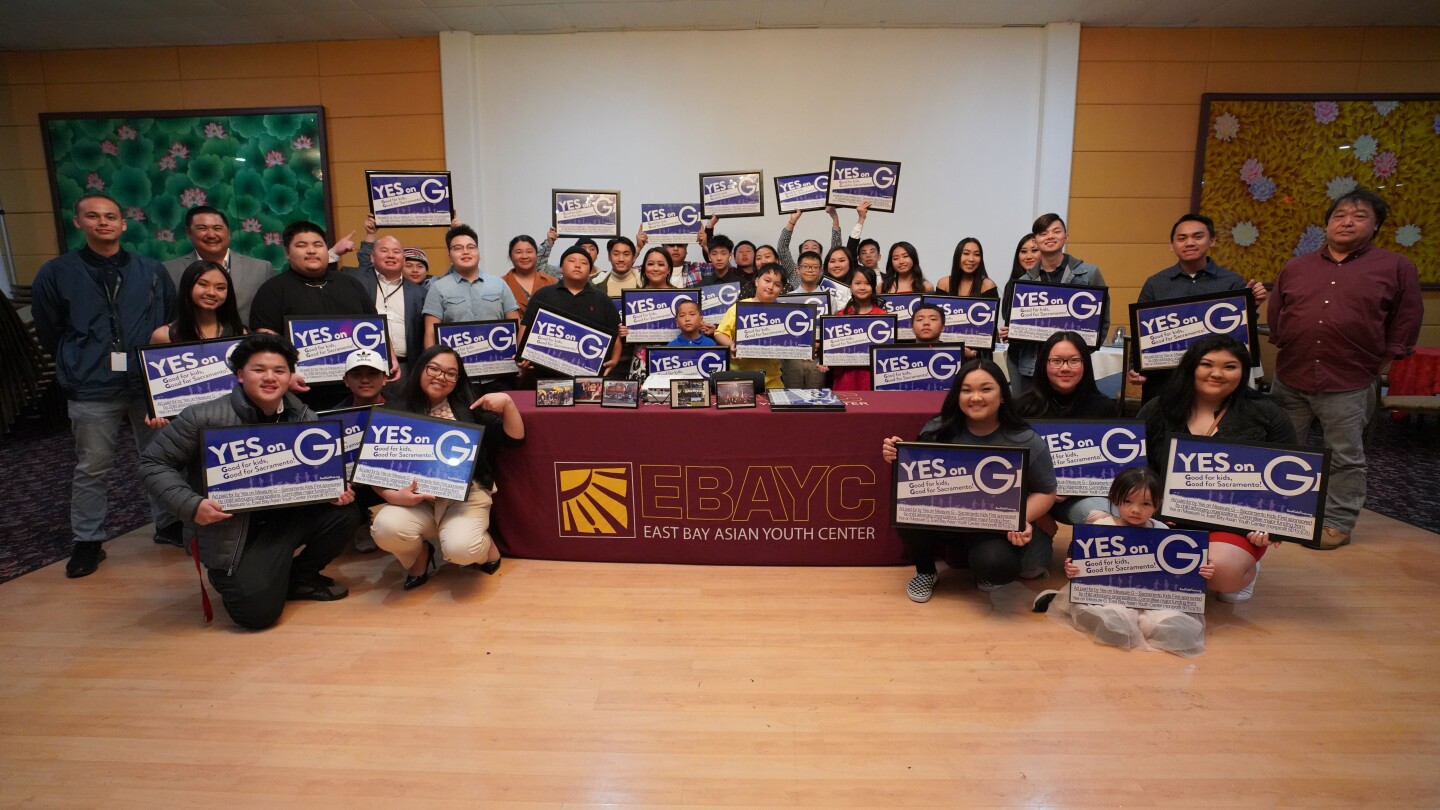Docking Paychecks: The High Cost of Working as a Port Truck Driver

This article was produced in collaboration with VoiceWaves, a Long Beach youth-led journalism and media-training project. The youth, ages 15-25, are learning to report, write and create digital journalism content.
Forty-one-year-old Daniel Aneseko “Seko” Uaina wears dark circles under his eyes.
As a truck driver working out of the Long Beach and Los Angeles ports, the Samoan American feels “burnt out” after each day, Monday through Thursday, working at least 13 hours on a night shift for the past five years.
He works for Intermodal Bridge Transport Inc. in Wilmington, where he is classified as an independent contractor. Unlike traditional employees, he is not compensated for overtime hours, sick time or provided other benefits like healthcare or vacation time.
To work there, he has to lease a truck to transfer containers holding imported goods for companies like Amazon, Target, and Walmart. He pays to lease the truck, about $60 a day, but it’s not lease-to-own. Essentially, he pays for the truck to work for IBT as other drivers also share the cost of the truck's lease. However, he nor any of the other drivers can use the truck for other transport jobs outside of IBT. His out-of-pocket costs drag on with an average of $90 a day for refueling the truck and a 7 to 10 percent insurance fee from his daily gross earnings.
Seko and many other truck drivers classified as independent contractors started to believe that something was wrong.
Related Stories
“Come to find out that, really, they were screwing us,” Seko says.
More than 30 years ago, being a port truck driver meant you could have a middle-class income, usually being unionized. But after the deregulation of the trucking industry, companies began hiring drivers as independent contractors, rather than employing them.
“It’s a scam; it really is a scam,” says Barbara Maynard, communications director for Justice for Port Drivers, a local labor rights group.
Maynard believes trucking companies “bate-and-switch” workers, pressuring them into signing contracts and leases, especially taking advantage of non-native-English speakers, such as the large Latino workforce. What typically happens is that once drivers realize they’re stuck paying for a lease, they can’t walk away from the thousands of dollars they’ve already spent for that truck, she says. It’s a cycle of working to pay for a truck that drivers can’t afford with the low wages they earn.
A 2014 report found that hundreds of drivers have filed labor complaints with regulatory agencies and lawsuits against trucking companies over wage theft, misclassification or other labor violations – and many have won. While judges and the California Division of Labor Standards Enforcement (DLSE) have sided with drivers, labor rights activists say that exploitation persists due to lack of enforcement and oversight. The study estimates that are 49,000 misclassified truck drivers nationwide.
“How are us little truck drivers gonna do this?” Seko recalls asking himself on fighting for labor rights. With the help of the Teamsters, a labor union, and other allies, he was able to learn how.
Since April 2014, port truck drivers have held 16 strikes at the L.A./Long Beach ports, often demanding to be reclassified as regular employees. Seko has participated in at least five of those strikes.
Some victories have been over something “smaller” like a proper breakroom, he says. Previously, truck drivers used an unkempt, empty truck container with two cut-out windows and a door as a breakroom. He’s still advocating for a proper restroom, however, since drivers are designated to use “disgusting” port-a-potties while dispatchers and other higher-ups at IBT use toilets in an office with running water.
“It just shows how much they really care about us,” he says.
Seko is also in the middle of a lawsuit with IBT over misclassification and wage theft alongside his co-workers. Before the suit, drivers often waited hours – unpaid – when picking up a container, whereas now, IBT pays drivers $20 after the second hour of wait time. He has also written letters to the Long Beach and L.A. mayors and visited city halls, asking them to hold trucking companies accountable.
He estimates that after deductions, he keeps about 40 percent of his earnings. “You're cheating us out of the money in which we deserve…” he directs to exploitative trucking companies.
On average, port truck drivers who are classified as independent contractors earn less than minimum wage after deductions, which may also include truck maintenance costs, parking lot fees, road taxes and a cell phone bill, according to a Justice for Port Truck Drivers analysis.
A couple of years ago, Seko struggled financially after becoming ill. He developed gout – a painful form of arthritis that swells the foot – for a month. As an independent contractor, he did not qualify for health benefits or sick leave and became overwhelmed with medical bills.
His wife, Sueann, 39, who was attending nursing school, had also relied on Seko’s income at the time. Fortunately, Seko’s two siblings, who he and Sueann share a house with, were able to help.
“That's why I'm thankful that I did have support because I wouldn't have been able to get by,” he says.
Now, Seko and Sueann both work – she as a hospice nurse. “She's working now, but before when she was going to school, I think a lot of times it was like a high five,” Seko jokes. “Like, tag, you’re in now.” She leaves the house at 5 a.m., and that’s about the same time Seko comes home from his night shift at 4:30 a.m. They find time to spend with each other, especially on the weekends.
But with all the jokes and giggles, Sueann sometimes worries about her husband’s well-being.

“It makes me sad,” Sueann says, knowing the sacrifices Seko makes for his job and both of them feeling pressure to pay the bills.
Seko highlights that there are truck drivers from other companies who made it – drivers who have been reclassified as official employees – like his cousin who works at Sea-Logix, a trucking company offering a union contract, benefits and better wages.
When asked why he chooses to stay at IBT instead of quitting and joining a company like Sea-Logix, he says most people ask him that question which upsets him, “Like, I’m stupid,” he chuckles. He wants to stay for a cause greater than himself, he says.
“I may die before these changes come, but at least I helped push it the right direction.”







